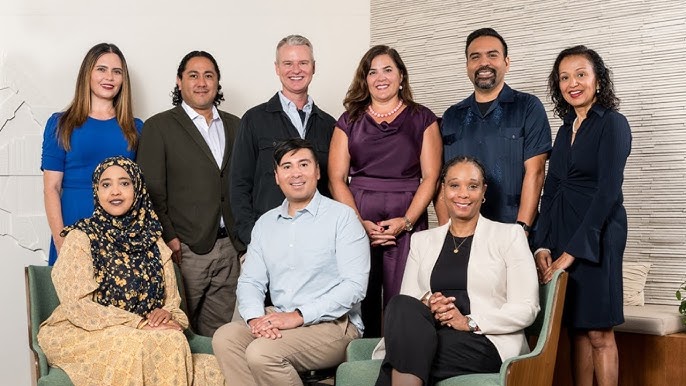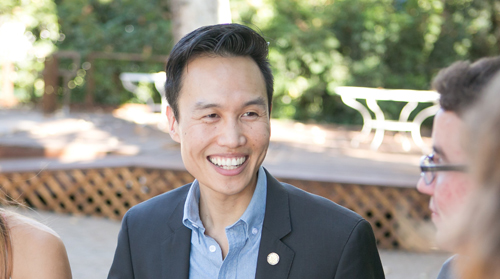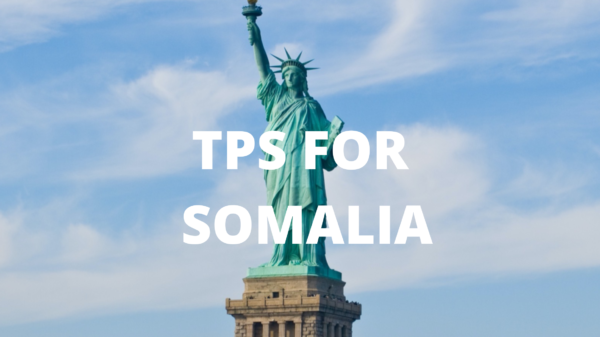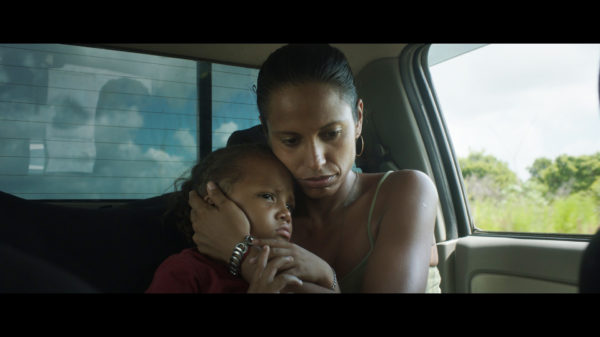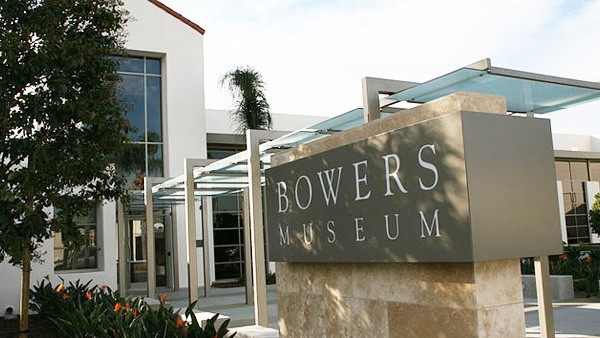The EMS briefing for the James Irvine Foundation Leadership Award Recipients was an exceptional event, shining a light on the steadfast commitment of leaders dedicated to addressing critical challenges in California. This gathering provided a platform to showcase the remarkable efforts of organizations and individuals alike, all working tirelessly to drive positive change throughout the state.
Notable among the distinguished speakers were Héctor Camacho Jr. and Elizabeth Baham from Reach University, who delved into the profound issue of California’s teacher shortage through innovative on-the-job degree and credential programs. Their impassioned discourse shed light on the intricate complexities of this challenge and underscored the imperative need for actionable solutions.
Elizabeth Baham eloquently conveyed the severity of the teacher shortage crisis, emphasizing its detrimental ramifications on students’ educational journeys. With thousands of teaching positions vacant and a significant portion of educators contemplating leaving the profession, California’s educational institutions are grappling with formidable hurdles. Baham poignantly underscored the adverse effects of this shortage, including larger class sizes, reduced academic offerings, and compromised instructional quality—all of which imperil students’ scholastic achievements.
In contrast, Héctor Camacho Jr. underscored the latent potential within California’s existing workforce, particularly among paraprofessionals and classified employees in educational settings. Despite their invaluable experience and unwavering dedication to students, many of these individuals encounter barriers hindering their access to higher education and teacher credentialing programs, ranging from time constraints to financial limitations. Camacho emphasized the urgent necessity to bridge this access gap, highlighting the glaring underrepresentation of people of color within California’s teaching cohort.
The personal narratives shared by Baham and Camacho added a poignant layer to their advocacy endeavors. Both speakers recounted their own educational odysseys within California’s schooling system, marked by a notable absence of educators who mirrored their backgrounds. Their shared resolve to become the kind of educators they yearned for underscores their mission at Reach University. Drawing from their encounters with marginalization, Baham and Camacho are steadfastly committed to ensuring that all students have access to adept, culturally sensitive educators who mirror their diverse identities.
Their fervent call to action resounded deeply, emphasizing that the time for decisive measures is now. Every passing day devoid of adequate support for California’s students signifies a missed opportunity to effect meaningful change in their lives. Baham and Camacho’s words serve as a poignant reminder that rectifying the teacher shortage is not merely about filling vacancies—it’s about guaranteeing that every child has access to the quality education they rightfully deserve.
As the briefing progressed, it became evident that the recipients of the James Irvine Foundation Leadership Award are not merely leaders—they are catalysts for change, embodying the spirit of resilience and innovation that defines California’s future. Their unyielding commitment to addressing the state’s most pressing challenges serves as an inspiration to us all.
Brian Poth and Nick Vargas, representing The Source LGBT+ Center, shed light on the challenges encountered by the LGBTQ+ community in California’s central valleys and the critical significance of fostering hope, health, safety, and inclusivity.
Brian Poth, as the Executive Director of The Source, underscored the urgent need for safe, affirming, culturally competent care for LGBTQ+ individuals in rural areas like Visalia. Despite considerable strides in recent years, many LGBTQ+ individuals continue to lack access to essential resources and encounter barriers to healthcare, particularly in conservative, religious communities where conversion therapy remains a troubling concern.
Poth accentuated the transformative role of telehealth services during the COVID-19 pandemic, offering a vital lifeline for LGBTQ+ individuals seeking culturally diverse and accepting care. He underscored the indispensable role played by The Source LGBT+ Center in providing free mental health services, peer support, and leadership opportunities for LGBTQ+ youth and elders, all delivered by a staff that identifies as LGBTQ+ themselves.
Nick Vargas shared his personal journey, growing up in Visalia and firsthand experiencing the challenges confronted by LGBTQ+ individuals in a community lacking essential resources and support. Despite initially leaving the area for college, Vargas felt compelled to return and address the disparities faced by LGBTQ+ individuals in his hometown.
Collectively, Poth and Vargas have spearheaded efforts to bridge these divides, establishing The Source as the largest LGBT+ center between Los Angeles and Sacramento. Through collaborative partnerships with local government and community organizations, they have broadened their impact, reaching over 26,000 individuals across three counties.
Despite the strides made, challenges endure, particularly in the face of anti-LGBT legislation and rhetoric that imperil the safety and rights of LGBTQ+ individuals, particularly transgender youth. Nonetheless, Poth and Vargas remain resolute in their mission, advocating for equality and providing indispensable services to their community.
As Poth prepares to receive a prescription for PrEP through The Source Clinic, he reflects on the profound impact of their work, symbolizing a significant milestone in delivering culturally competent care directly to the LGBTQ+ community in the central valleys. Through their unwavering dedication and perseverance, Poth and Vargas are effecting tangible change, ensuring that LGBTQ+ individuals no longer need to depart from their communities to access the support and resources they deserve.
Indeed, The Source LGBT+ Center stands as a beacon of hope, resilience, and inclusivity, epitomizing the spirit of progress and transformation in California’s central valleys.
Manjusha Kulkarni of AAPI Equity Alliance then addressed the pressing issue of hate and discrimination against Asian American and Pacific Islander (AAPI) communities. With her extensive experience in advocacy and policy solutions, Kulkarni delineated the critical endeavors underway to confront and combat this alarming trend.
Kulkarni underscored the significant impact of hate speech and discriminatory policies targeting AAPI communities, exacerbated by divisive rhetoric at the highest echelons of leadership. She elucidated the emergence of anti-Asian hate during the COVID-19 pandemic, fueled by racist rhetoric and scapegoating.
As the Regional lead of California’s Stop the Hate grant program, Kulkarni has spearheaded efforts to prevent hate and address incidents of discrimination. She emphasized the imperative of coalition-building and collaboration across diverse communities, advocating for inclusive policies safeguarding marginalized groups.
Drawing from her personal experiences, Kulkarni shared anecdotes of discrimination encountered by her own family, highlighting the pervasive nature of anti-immigrant sentiment in American society. She recounted her parents’ struggle against discrimination, underscoring the pivotal role of policy change in redressing systemic inequalities.
Kulkarni’s endeavors with AAPI Equity Alliance have centered on amplifying the voices of AAPI communities and advocating for their rights. Through data-driven strategies, strategic partnerships, and policy initiatives, she has tirelessly worked to confront hate and foster inclusivity.
In the face of mounting challenges, Kulkarni remains steadfast in her commitment to advancing equity and justice for AAPI communities. She urged civic engagement and collective action, underscoring the significance of voting in shaping a more inclusive and multicultural democracy.
Kulkarni’s remarks underscored the urgent imperative for solidarity and action in the battle against hate and discrimination. Her advocacy serves as a beacon of hope for AAPI communities, reaffirming the resilience and strength of those steadfast in their resistance against injustice.
Amina Sheikh Mohammed emphasized the paramount importance of collaboration and partnership in addressing the social determinants of health and education, echoing sentiments shared by preceding speakers. She underscored the imperative of establishing systems that are more navigable for refugees upon their arrival and highlighted the pivotal role of community-led initiatives in effecting transformative change.
Mohammed’s personal connection to the work, stemming from her own experiences as a refugee, imbues her advocacy with a profound sense of responsibility and urgency. She emphasized that advocating for the refugee community transcends mere occupation—it is an intrinsic facet of her identity and existence within her community. Mohammed’s dedication to making a difference is fueled by the tangible transformations witnessed within her community and the enduring challenges necessitating her attention.
In terms of achievements, Mohammed highlighted the establishment of a coalition table for refugee communities as a significant milestone. This collaborative platform brings together ethnic community-based organizations to share funding sources and priorities for policymaking, shifting the narrative from individual advocacy to collective action. Mohammed also stressed the importance of fostering empowerment within the community, ensuring that community organizations are equal partners in shaping societal norms.
Cindy Downing from The James Irvine Foundation then deliberated on nominations for next year’s awards. Downing underscored the Foundation’s commitment to honoring leaders who confront critical challenges with innovative solutions, thereby enhancing lives and contributing to a better California. She encouraged attendees to nominate inspiring and under-recognized leaders for consideration, emphasizing criteria such as significance, innovation, effectiveness, inclusiveness, timing, and leadership capacity. Each recipient’s organization receives a grant of $350,000 from the Foundation and benefits from the opportunity to share their approaches with policymakers and peers.
In essence, Mohammed’s impassioned advocacy for refugee communities and Downing’s call for nominations underscored the importance of acknowledging and supporting leaders propelling positive change in California. Their messages resonated with the overarching theme of the event: the potent force of collaboration, innovation, and leadership in addressing the state’s most pressing challenges.
#LeadershipAwards #CaliforniaChallenges #TacklingIssues #SocialJustice #InnovationInAction #CommunityImpact #EquityNow #InclusiveLeadership #TransformingCommunities #BuildingABetterFuture

